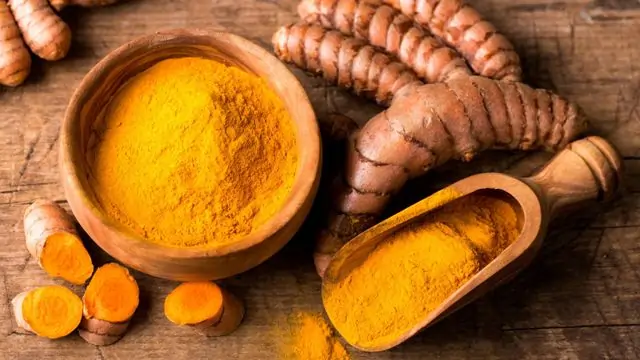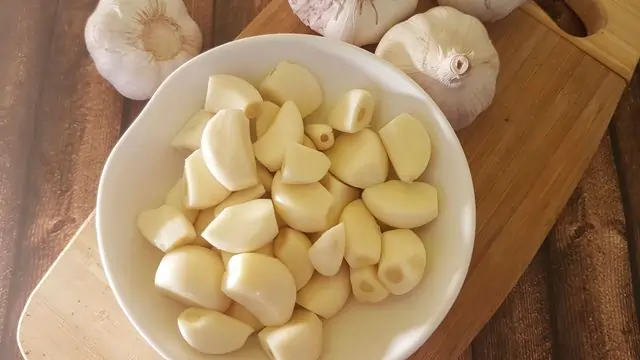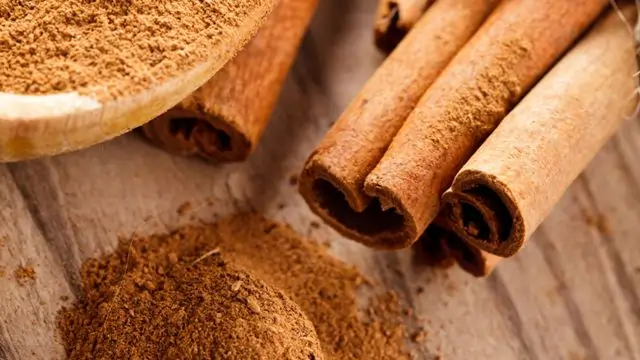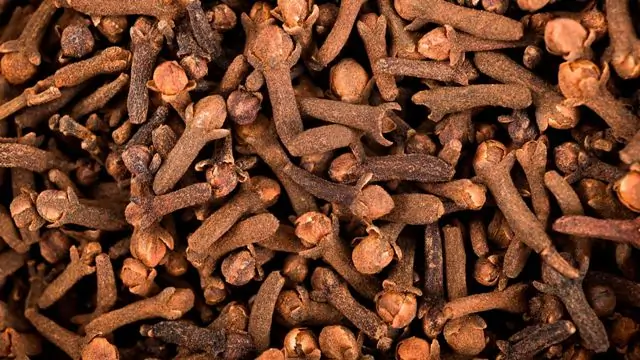Top inflammatory herbs and spices
Anti-inflammatory herbs and spices are natural plant-based ingredients that have been used for centuries to help reduce inflammation in the body. Inflammation is a natural response by the body’s immune system to injury or infection, but chronic inflammation can lead to a wide range of health problems such as arthritis, heart disease, and cancer. Certain herbs and spices contain compounds that have been shown to possess anti-inflammatory properties, making them an effective and natural way to reduce inflammation and improve overall health. Incorporating these powerful herbs and spices into your diet can be an easy and tasty way to take control of your health and well-being.

Inflammation and Its Negative Effects on the Body
Inflammation is a natural immune response that helps the body fight infection and heal injuries. However, chronic inflammation can have negative effects on the body, including increased risk of chronic diseases such as heart disease, diabetes, and cancer. Long-term inflammation can also damage tissues and lead to pain, swelling, and other uncomfortable symptoms. Managing inflammation through diet and lifestyle choices can help reduce the risk of chronic disease and promote overall health and well-being.
Herbs and Spices for Natural Inflammation Relief
Inflammation can be a root cause of several chronic diseases, and many people rely on medication to manage inflammation. However, herbs and spices can also be used as a natural and effective way to combat inflammation. Certain herbs and spices contain compounds that possess anti-inflammatory properties and have been used for centuries to reduce inflammation in the body. In this article, we will discuss 10 powerful anti-inflammatory herbs and spices that you can incorporate into your diet to manage inflammation and improve your overall health.
10 Powerful Options
In this article, we will discuss 10 powerful anti-inflammatory herbs and spices that have been shown to reduce inflammation in the body. These options include ginger, turmeric, garlic, cinnamon, black pepper, cayenne pepper, rosemary, thyme, oregano, and sage. We will explore the science behind their anti-inflammatory properties, how to use them in cooking, and their potential health benefits. By the end of this article, you will have a better understanding of how to use these natural remedies to combat inflammation and improve your overall health.
Turmeric

Turmeric is a spice that has been used for centuries in traditional medicine for its anti-inflammatory properties. The main active compound in turmeric is called curcumin, which has been shown to have powerful anti-inflammatory effects in the body.
Curcumin has been found to inhibit the activity of inflammatory molecules in the body, which can help reduce inflammation and pain. Several studies have shown that curcumin is effective in reducing inflammation in various conditions, such as osteoarthritis, rheumatoid arthritis, and inflammatory bowel disease.
In one study published in the Journal of Alternative and Complementary Medicine, curcumin was found to be effective in reducing inflammation and pain in patients with osteoarthritis. Another study published in the Journal of Clinical Psychopharmacology found that curcumin was effective in reducing symptoms of depression, which has been linked to inflammation in the body.
Turmeric can be easily incorporated into meals and drinks, such as adding it to curries, soups, smoothies, or golden milk. However, it’s important to note that the curcumin content in turmeric is relatively low, and supplements or concentrated extracts may be necessary to achieve the full benefits. As with any supplement or herbal remedy, it’s important to consult with a healthcare professional before use.
Ginger

Ginger is a versatile and popular herb with a long history of use in traditional medicine for its many health benefits. One of its most notable benefits is its potent anti-inflammatory properties. Ginger contains compounds called gingerols and shogaols that have powerful anti-inflammatory and antioxidant effects in the body.
Studies have shown that ginger can help alleviate inflammation and pain in people with various types of arthritis, including osteoarthritis and rheumatoid arthritis. It works by inhibiting the activity of inflammatory molecules in the body, which can help reduce pain and stiffness.
In addition to its anti-inflammatory effects, ginger has been shown to improve digestion and reduce inflammation in the gut. This makes it a useful natural remedy for people with digestive issues such as irritable bowel syndrome (IBS).
Ginger can be easily incorporated into meals and drinks, such as adding freshly grated ginger to stir-fries, smoothies, and juices, or drinking ginger tea. It is important to note that ginger may interact with certain medications, and it is always best to consult with a healthcare professional before using it as a supplement or herbal remedy.
Garlic

Garlic is a common culinary ingredient that has also been used for its medicinal properties for centuries. It is well-known for its immune-boosting and anti-inflammatory properties, which can help protect the body against various health issues.
Garlic contains several compounds that are believed to have anti-inflammatory effects, such as allicin, diallyl disulfide, and S-allyl cysteine. These compounds can inhibit the activity of pro-inflammatory molecules in the body, which can help reduce inflammation and pain.
Studies have shown that garlic can be effective in reducing inflammation in several health conditions, including osteoarthritis and rheumatoid arthritis. One study published in the Journal of Medicinal Food found that garlic extract was effective in reducing inflammation markers in patients with osteoarthritis.
Overall, the anti-inflammatory properties of garlic make it a powerful natural remedy for managing inflammation in the body. Incorporating garlic into your diet is easy and can be done by adding it to meals, such as roasted vegetables or soups. However, it’s important to note that garlic supplements may be necessary to achieve the full benefits, and it’s best to consult with a healthcare professional before use.
Cinnamon

Cinnamon is a popular spice that is known for its sweet and warm flavor, but it also has anti-inflammatory properties that have been studied in recent years. The main active compound in cinnamon is called cinnamaldehyde, which has been shown to have anti-inflammatory effects in the body.
Studies have found that cinnamon can reduce inflammation by inhibiting the activity of pro-inflammatory molecules in the body. In fact, a study published in the Journal of Medicinal Food found that cinnamon was effective in reducing inflammation in people with type 2 diabetes, a condition that is often associated with chronic inflammation.
Another study published in the Journal of Agricultural and Food Chemistry found that cinnamon extract was effective in reducing inflammation in the brain, which has been linked to neurological conditions such as Alzheimer’s disease.
Adding cinnamon to meals and drinks can enhance taste and provide potential anti-inflammatory benefits. A pinch of cinnamon in coffee or tea gives a warm and cozy flavor. It can be sprinkled on oatmeal or yogurt for a sweet and spicy kick, used as seasoning for roasted vegetables, and mixed into nut butter for a tasty spread. Cinnamon can be added to baked goods like muffins, bread, or pancakes. A cinnamon apple smoothie can be made by blending apples, yogurt, milk, and cinnamon. These simple ways can make a significant difference in your diet and health.
Rosemary

Rosemary is an herb that has been traditionally used for medicinal purposes, including for its anti-inflammatory properties. The active compounds in rosemary, such as carnosic acid and rosmarinic acid, have been shown to have potent anti-inflammatory effects in the body.
Research has found that rosemary may help to reduce inflammation and pain in conditions such as osteoarthritis and rheumatoid arthritis. Additionally, some studies have shown that rosemary may also have a neuroprotective effect, potentially reducing inflammation in the brain and protecting against neurodegenerative diseases.
To incorporate rosemary into your diet, try using it as a seasoning for roasted vegetables or meats, or add it to marinades and dressings for added flavor. Rosemary tea can also be a soothing and flavorful way to enjoy the potential anti-inflammatory benefits of this herb. As always, it’s important to speak with a healthcare professional before using any herb or supplement for medicinal purposes.
Sage

Sage, a common herb in Mediterranean cuisine, is also known for its anti-inflammatory properties. It contains compounds that can help reduce inflammation in the body, including rosmarinic acid and carnosol. These compounds have been shown to inhibit the production of inflammatory molecules in the body.
Research has also suggested that sage may have potential benefits for reducing inflammation in conditions such as rheumatoid arthritis and asthma. In one study, patients with rheumatoid arthritis who took sage supplements experienced a reduction in inflammation and improved joint function.
Sage can be used in a variety of dishes, including soups, stews, and roasted meats. It also pairs well with other anti-inflammatory herbs and spices like rosemary and turmeric. Adding sage to your diet may not only enhance the flavor of your meals, but also provide potential health benefits.
Cloves

Cloves are a type of spice that are often used in baking and cooking, but they also have impressive anti-inflammatory properties. Cloves contain compounds like eugenol and flavonoids, which have been shown to have anti-inflammatory effects in the body.
One study published in the Journal of Medicinal Food found that clove extract was able to reduce inflammation and oxidative stress in mice with colitis, a type of inflammatory bowel disease. Another study published in the Journal of Agricultural and Food Chemistry found that the antioxidants in cloves were able to reduce inflammation and pain in rats with arthritis.
Cloves can be used in a variety of ways to help manage inflammation in the body. They can be added to baked goods like cookies and cakes, used as a seasoning for savory dishes like roasted meats or vegetables, or brewed into tea. It’s important to note that cloves are quite potent, so a little goes a long way. Too much can actually cause irritation to the mouth and digestive system, so it’s best to use them in moderation and consult with a healthcare professional before use
Cayenne Pepper

Cayenne pepper contains an active ingredient called capsaicin, which has been shown to have powerful anti-inflammatory effects. Capsaicin can inhibit the production of certain inflammatory substances in the body, such as prostaglandins and leukotrienes, which can contribute to conditions like arthritis and other inflammatory diseases.
In addition to reducing inflammation, cayenne pepper may also help improve circulation and relieve pain. Studies have found that topical application of capsaicin can be effective in reducing pain associated with conditions like osteoarthritis and fibromyalgia.
Adding a sprinkle of cayenne pepper to your meals can not only add a spicy kick, but also potentially provide anti-inflammatory benefits. However, it’s important to note that cayenne pepper may not be suitable for everyone, especially those with digestive issues or allergies to spicy foods. It’s always best to consult with a healthcare professional before adding any new foods or supplements to your diet.
Black Pepper

Black pepper contains a compound called piperine, which has been found to have anti-inflammatory effects. Piperine can help reduce inflammation by inhibiting the activity of enzymes that promote inflammation in the body. Additionally, black pepper has been shown to increase the bioavailability of other anti-inflammatory compounds, such as curcumin from turmeric. This means that consuming black pepper alongside other anti-inflammatory herbs and spices can enhance their effectiveness. Black pepper can be added to a variety of dishes to add flavor and potential health benefits.
What is the strongest anti-inflammatory herb?
There are several herbs that have strong anti-inflammatory properties, but one of the strongest is turmeric. The main active compound in turmeric, called curcumin, has been shown to have powerful anti-inflammatory effects in the body. Studies have found that curcumin can inhibit the activity of inflammatory molecules in the body, which can help reduce inflammation and pain. In fact, some research has shown that curcumin can be as effective as some anti-inflammatory drugs, without the negative side effects. Other herbs with strong anti-inflammatory properties include ginger, garlic, cinnamon, and sage.
Which Indian herb is best for inflammation?
Turmeric, also known as “haldi” in Hindi, is the best Indian herb for inflammation due to its powerful anti-inflammatory properties. It contains an active compound called curcumin, which has been shown to inhibit the activity of inflammatory molecules in the body, thereby reducing inflammation and pain. Turmeric has been used in traditional Indian medicine for centuries for its healing properties, and modern scientific research has also supported its effectiveness in managing inflammation. It can be consumed in various forms such as turmeric powder, fresh turmeric root, or as a supplement. However, as with any supplement or herbal remedy, it’s important to consult with a healthcare professional before use.
प्राकृतिक रूप से संवेदनाशीलता को कैसे रोका जा सकता है?
प्राकृतिक रूप से संवेदनाशीलता को रोकने के लिए आप खाद्य सुधारों और व्यायाम जैसी चीजें अपना सकते हैं। आपकी आहार आपकी स्वास्थ्य से संबंधित होता है और अन्य कई रोगों के अलावा संवेदनाशीलता को भी प्रभावित करता है। आप अपने आहार में अधिक फल, सब्जियों, पूर्ण अनाज, दूध उत्पादों और अन्य पोषणपूर्ण खाद्य पदार्थ शामिल कर सकते हैं।
व्यायाम भी संवेदनाशीलता को कम करने में मदद करता है। व्यायाम अंतिम रूप देने वाले अधिक तंदुरुस्त होते हैं, जो फिर संवेदनाशीलता के साथ लड़ने के लिए अधिक तैयार होते हैं। नियमित व्यायाम और स्वस्थ आहार का संयोजन आपको संवेदनाशीलता से बचने में मदद कर सकता है।
इसके अलावा, कुछ खाद्य सुधारों जैसे तुलसी, अदरक, हल्दी, लहसुन, दालचीनी और काली मिर्च भी प्राकृतिक रूप से संवेदनाशीलता को कम करने में मदद करते हैं।
Blog Post Conclusion
In conclusion, incorporating anti-inflammatory herbs and spices into your diet is a simple and natural way to promote overall health and well-being. Turmeric, ginger, garlic, cinnamon, rosemary, sage, cloves, cayenne pepper, and black pepper all offer unique and powerful anti-inflammatory properties. By adding these herbs and spices to your meals and drinks, you can not only enhance the flavor, but also potentially reduce inflammation in the body.
It’s important to note that while these herbs and spices can be a helpful addition to your diet, they should not be used as a replacement for medical treatment or medication. As with any supplement or herbal remedy, it’s important to consult with a healthcare professional before use, especially if you have any underlying health conditions or are taking medication.
Incorporating anti-inflammatory herbs and spices into your daily routine can be a delicious and beneficial way to support your overall health and wellness. So next time you’re in the kitchen, don’t be afraid to spice things up!
FAQ on Anti Inflammatory Herbs and Spices
What are some anti-inflammatory herbs and spices?
Some anti-inflammatory herbs and spices include turmeric, ginger, garlic, cinnamon, rosemary, sage, cloves, cayenne pepper, and black pepper.
How do herbs and spices help with inflammation?
Herbs and spices contain natural compounds that have anti-inflammatory properties and can help reduce inflammation in the body.
Can herbs and spices be used as a natural alternative to medication for inflammation?
While herbs and spices can be helpful in managing inflammation, it’s important to consult with a healthcare professional before using them as a substitute for medication.
What are some ways to incorporate anti-inflammatory herbs and spices into meals?
Anti-inflammatory herbs and spices can be added to meals and drinks by using them as seasoning, making tea or smoothies, or adding them to baked goods.
